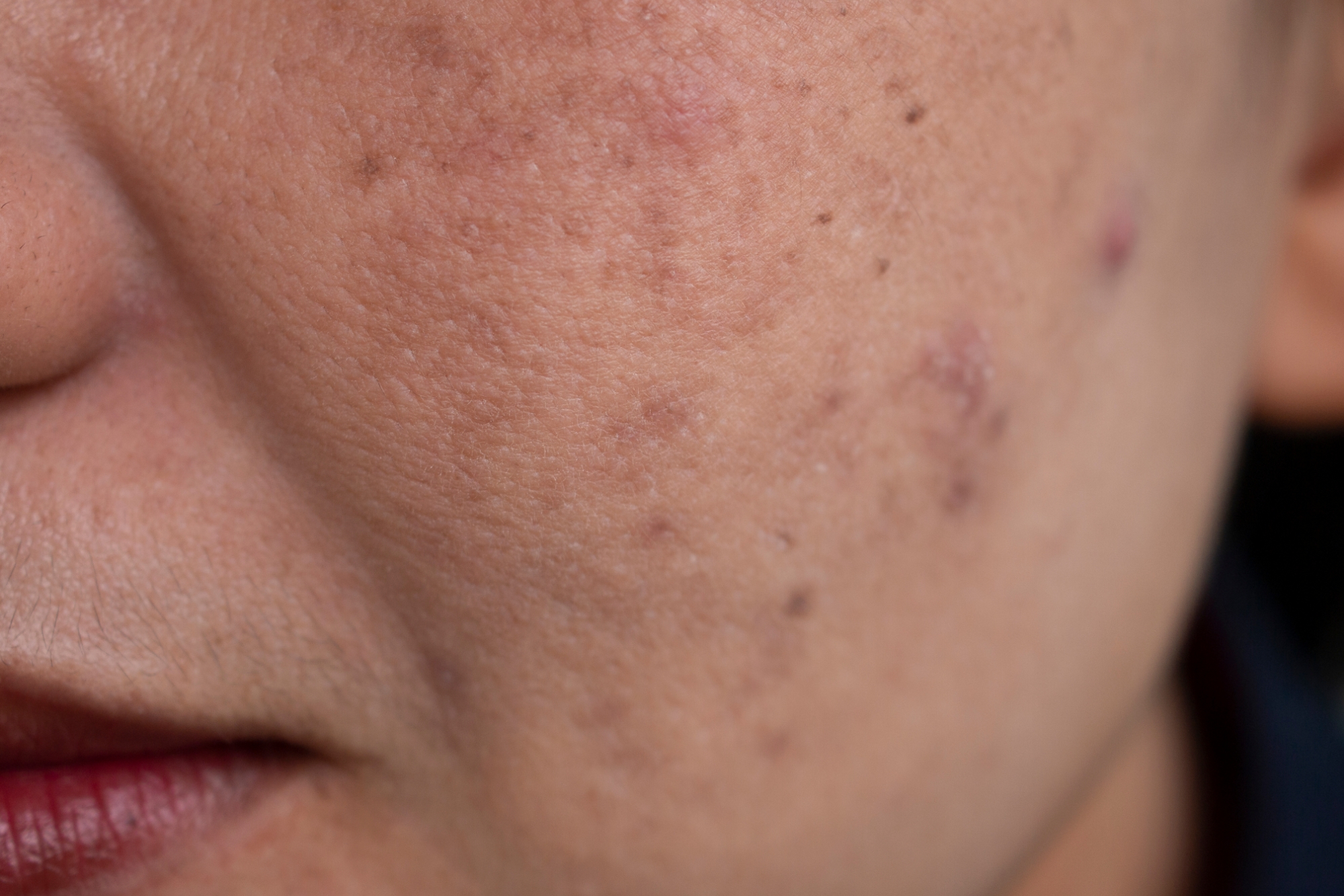Melasma is a skin condition that creates brown patches of skin in areas that get significant sun exposure. At Epiphany Dermatology, we are passionate about restoring your skin and helping you to achieve a smooth, even complexion. With this in mind, our skilled team members work hard to make melasma treatment a positive, comfortable experience.
What Causes Melasma?
The leading cause of melasma is exposure to UVA sun rays. UVA rays can lead to significant damage to your skin. Most sunscreens protect against a broad spectrum of UV rays but do not offer UVA ray protection. UVA rays are even able to penetrate through standard glass windows and other barriers.
Melasma Triggers
Once you have developed melasma, the brown splotches on your skin can worsen with continued exposure or co-existing conditions. Specific triggers in your body can make the brown patches darker and more noticeable, as well.
Some of the most common triggers for melasma include:
- Pregnancy (chloasma)
- Certain anti-seizure medications
- High estrogen levels
- Poor sun protection
These triggers can aggravate existing symptoms of melasma and affect the appearance of your skin. Prevention is the most important step you can take to minimize hyperpigmentation.
Does Sunscreen Protect Against Melasma?
Unfortunately, most commercial sunscreens do not block UVA rays from harming your skin. Even sunscreens that are marketed as “broad-spectrum” protection can lack the necessary chemicals to block exposure to UVA rays. However, certain types of sunscreen can be effective for preventing and managing melasma.
Chemical Sunscreen
Chemical sunscreen is absorbed into your skin, usually in the form of a spray or light cream. When UVA rays hit your skin, chemical sunscreen affects the way the UVA rays interact with your body on the cellular level. Chemical sunscreen is different than sunblock, which is a thick cream that physically reflects the sun’s rays off of your body.
In order for chemical sunscreens to protect you from UVA rays, they must contain specific ingredients that block the entire UV spectrum to ensure your skin is protected against all forms of sun damage. It is best to use a chemical or mineral sunscreen that contains titanium dioxide or zinc oxide. These ingredients protect against UVA and UVB sunrays and can provide you with maximum skin protection. Ask your provider for recommendations on the best sunscreen for your skin.
Incorporating sun protection into your daily routine can prevent new or worsening melasma symptoms.
Can Melasma Be Cured?
At this time, there is no treatment that can fully cure melasma once sun exposure has taken place. However, at Epiphany Dermatology, our treatments can significantly reduce the appearance of brown splotches on your skin.
We can help you learn to manage your condition and control symptoms with proven melasma treatment and products.
Hyperpigmentation Treatment
When your skin experiences hyperpigmentation of any kind, the most common treatment is regular skin care. This can be done in the form of topical creams, laser procedures or a series of aesthetic procedures.
Many skin conditions are long lasting. This means that routine maintenance and a customized skin care regimen may be required to help you achieve and maintain your desired results.
What Are My Melasma Treatment Options?
Melasma symptoms can be treated with skin therapy and topical creams. Effective hyperpigmentation treatment usually requires a combination of treatment options that work together to keep pigmentation to a minimum.
Some treatments are more effective than others. Our knowledgeable dermatology professionals will assess the condition of your skin to determine which treatment options might be best for you.
Skin Bleaching Cream
Creams that lighten your skin tone can be highly effective for hyperpigmentation treatment. Known as “skin bleaching creams,” these products contain hydroquinone. The typical prescription for bleaching cream is 4% strength. Prescription bleaching cream is one of the best treatments for melasma.
Other Topical Medication
Topical medications can be applied to the skin directly. They normally come in the form of a skin cream prescribed by one of our expert dermatologists.
Topical treatments for melasma may not be as effective as other, more permanent treatments, as they only treat brown splotches on the first layer of your skin.
Fraxel® Laser Resurfacing
Fraxel® Laser Resurfacing is a melasma treatment that is available at some of our Epiphany Dermatology offices. If your provider determines that you are a candidate for Fraxel® Laser Resurfacing, our skilled medical professionals will use a laser to remove the blotchy spots on your skin and restore your even, clear complexion.
If your provider recommends it, a combination of Fraxel® Laser Resurfacing and skin bleaching cream can be extremely effective at treating melasma. These treatments can help reduce or eliminate the appearance of hyperpigmentation on your skin when paired together.
What Other Services Help to Improve Melasma?
There are several skin care treatments that can help to exfoliate the skin and reduce the appearance of melasma, including chemical peels, microdermabrasion, and RF microneedling. For melasma, these common treatments work best when combined with topical medications. It is always best to speak to a provider to determine which skin care products and treatments will be most effective to treat your individual skin concerns.

